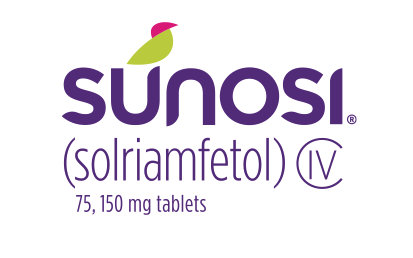How Effective is Modafinil for Chronic Fatigue Syndrome?
Chronic Fatigue Syndrome (CFS), or Myalgic Encephalomyelitis (ME), is a long-term condition characterized by persistent fatigue that is not relieved by rest. Standard therapies such as cognitive behavioral therapy (CBT) and graded exercise therapy (GET) have limited effectiveness for many patients.
Modafinil, a medication approved to treat excessive daytime sleepiness in narcolepsy, is increasingly considered as an off-label treatment for managing fatigue in CFS.
What Is Modafinil?
Modafinil is a central nervous system stimulant used to promote wakefulness. It is FDA-approved for narcolepsy, shift work sleep disorder, and obstructive sleep apnea-related fatigue.
The mechanism of action involves the modulation of neurotransmitters such as dopamine and norepinephrine. Modafinil acts by inhibiting dopamine reuptake and increasing histaminergic and glutamatergic transmission, which helps to improve alertness and cognitive function (Kumar, 2008; U.S. Food and Drug Administration, 2007).
Why Consider Modafinil for CFS?
Patients with CFS often experience profound fatigue, cognitive dysfunction (“brain fog”), and sleep disturbances. Since Modafinil is known to counteract fatigue and cognitive deficits in other neurological disorders, researchers have begun testing its utility in CFS patients.
Several case reports and small studies have shown meaningful improvement in fatigue and quality of life when Modafinil is administered to patients with treatment-resistant CFS.
Clinical Evidence on Modafinil in CFS
Case Reports and Observational Evidence
- Turkington et al. (2004) documented the case of a man with 13 years of CFS who returned to part-time work after initiating Modafinil. His energy levels rose from 20% to 60% of optimal functioning within a few months.
- Garg et al. (2021) conducted a retrospective review of three patients with refractory CFS who were treated with Modafinil and CBT. Two patients showed clinically meaningful improvements in fatigue and cognitive symptoms, and all three achieved “social recovery,” including returning to work or full-time education.
Controlled Study with Mixed Findings
- Randall et al. (2005) performed a double-blind, placebo-controlled crossover study of 14 CFS patients. Although Modafinil improved performance in some cognitive tests, it did not significantly reduce fatigue or improve self-reported quality of life. The study noted considerable variation in individual response, suggesting Modafinil may benefit only a specific CFS subgroup.
Potential Benefits of Modafinil for CFS
Improved Wakefulness and Energy
Modafinil has shown promise in reducing daytime fatigue and enhancing alertness in CFS patients who fail to respond to standard interventions (Garg et al., 2021; Turkington et al., 2004).
Cognitive Enhancement
CFS often involves cognitive impairments, particularly in memory and attention. Modafinil may help alleviate these symptoms due to its effects on neurotransmitter systems involved in focus and alertness (Kumar, 2008).
Functionality and Social Recovery
Clinical reports show patients returning to work or training after Modafinil use, indicating potential benefits for functional and psychosocial recovery.
Risks and Limitations
Side Effects
Reported side effects of Modafinil include:
These are typically mild but may limit long-term use in some individuals (U.S. Food and Drug Administration, 2007).
Regulatory Status and Off-Label Use
Modafinil is not approved for the treatment of CFS. Its use in this context is considered experimental. Physicians prescribing Modafinil for CFS must ensure informed consent and appropriate monitoring.
Inconsistent Evidence
Controlled trials have yielded mixed results, and there is a lack of large-scale randomized studies. The treatment may benefit only a subset of CFS patients, particularly those with excessive daytime sleepiness or coexisting sleep disorders.
Clinical Considerations
- Screening: Identify patients with predominant fatigue and cognitive dysfunction who may benefit.
- Combination Treatment: Evidence suggests Modafinil works best when combined with CBT.
- Monitoring: Evaluate side effects, tolerance, and functionality over time.
Conclusion
Modafinil shows potential as a supportive therapy for some individuals with Chronic Fatigue Syndrome, particularly when traditional treatments are ineffective. However, due to limited controlled evidence, it should be used cautiously and only under medical supervision. More research is needed to identify which subgroups of CFS patients are most likely to benefit.
References
- Garg, H., Douglas, M., Turkington, G. D., & Turkington, D. (2021). Recovery from refractory chronic fatigue syndrome with CBT and modafinil. BMJ Case Reports, 14(3), e240283. https://doi.org/10.1136/bcr-2020-240283
- Kumar, R. (2008). Approved and investigational uses of modafinil: An evidence-based review. Drugs, 68(13), 1803–1839. https://doi.org/10.2165/00003495-200868130-00003
- Randall, D. C., Cafferty, F. H., Shneerson, J. M., Smith, I. E., Llewelyn, M. B., & File, S. E. (2005). Chronic treatment with modafinil may not be beneficial in patients with chronic fatigue syndrome. Journal of Psychopharmacology, 19(6), 647–660. https://doi.org/10.1177/0269881105056531
- Turkington, D., Hedwat, D., Rider, I., & Young, A. H. (2004). Recovery from chronic fatigue syndrome with modafinil. Human Psychopharmacology: Clinical and Experimental, 19(1), 63–64. https://doi.org/10.1002/hup.554
- U.S. Food and Drug Administration. (2007). PROVIGIL® (modafinil) tablets [prescribing information]. U.S. Department of Health and Human Services. Retrieved from https://www.accessdata.fda.gov/drugsatfda_docs/label/2007/020717s020s013s018lbl.pdf








